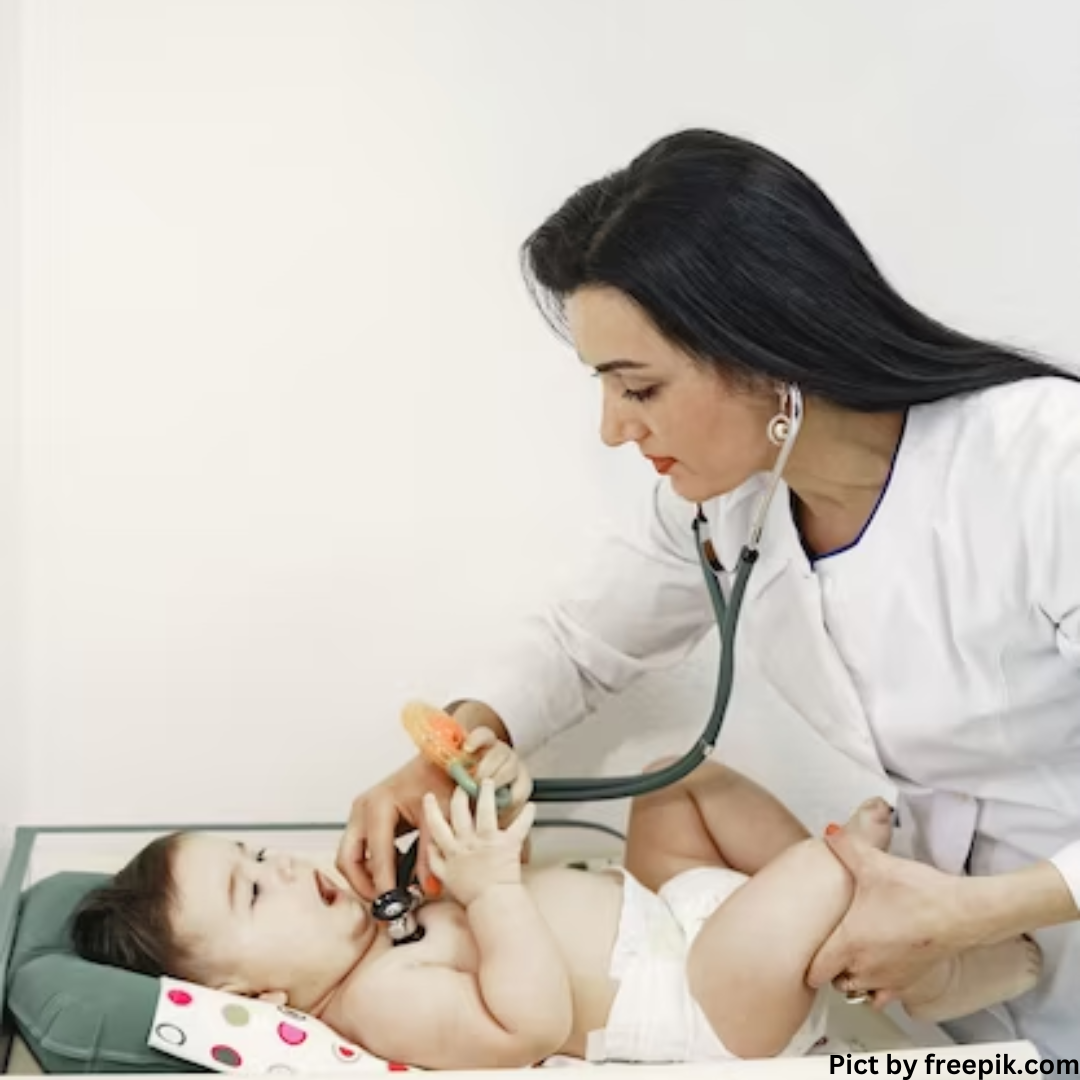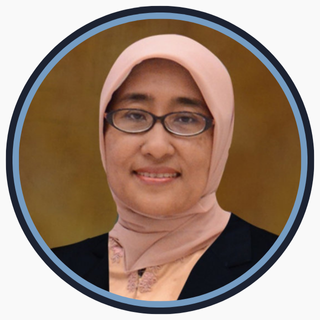ANALYSIS OF DIARRHEA MANAGEMENT IN CHILDREN UNDER TWO YEARS OLD IN INDONESIA
Analisis Penatalaksanaan Diare pada Anak Kurang Dari 2 Tahun di Indonesia

Downloads
Background: Diarrhea in children under two is still a severe problem in Indonesia, affecting achieving SDG target 3. Providing good care will reduce the risk of death in children caused by diarrhea. Purpose: This study aimed to analyze the relationship between socio-demographic characteristics, place of residence, and access to media in mothers with children under two years old and diarrhea management in children in Indonesia. Methods: This study used secondary data from the 2017 Indonesian Health Demographic Survey (DHS) with a cross-sectional study design. Analyzed were the responses of 1,061 mothers whose children under two had diarrhea in the two weeks before the survey. Samples were taken using two-stage sampling methods. The data were analyzed by chi-square and multiple logistic regression. Multiple logistic regression was adjusted for the complex sampling designs of DHS for data analysis. Results: 59.50% of children received inappropriate treatment. Older mothers (AOR 20–24 = 2.03, 95% CI = 1.03–3.98) who lived in rural areas (AOR = 1.41, 95% CI = 1.03–1.94), had access to several media (AOR = 2.03, 95% CI = 1.01–4.10), and all media (AOR = 2.23, 95% CI = 1.07–4.64), had higher odds of having a child whose diarrhea treatment was not appropriate after controlling for other variables. Conclusion: Mothers' age, residence, and access to media have a significant relationship with inappropriate diarrhea care for their children. Therefore, interventions need to focus on women who live in rural areas and have access to the media.
WHO. Diarrhoeal disease. 2017.
Bhutta ZA, Berkley JA, Bandsma RHJ, Kerac M, Trehan I, Briend A. Severe childhood malnutrition. Nat Rev Dis Prim. 2017 Sep;3:17067.
Wierzba TF, Muhib F. Exploring the broader consequences of diarrhoeal diseases on child health. Lancet Glob Heal. 2018;6(3):e230–1.
Guarino A, Lo Vecchio A, Dias JA, Berkley JA, Boey C, Bruzzese D, et al. Universal Recommendations for the Management of acute diarrhea in nonmalnourished children. J Pediatr Gastroenterol Nutr. 2018 Nov;67(5):586–93.
Bappenas. Tentang SDGs. 2021.
Giannattasio A, Guarino A, Lo Vecchio A. Management of children with prolonged diarrhea. F1000Research. 2016 Feb;5:F1000 Faculty Rev-206.
Kaunitz JD. Oral Defense: How oral rehydration solutions revolutionized the treatment of toxigenic diarrhea. Dig Dis Sci. 2020 Feb;65(2):345–8.
Ofei SY, Fuchs GJ 3rd. Principles and practice of oral rehydration. Curr Gastroenterol Rep. 2019 Dec;21(12):67.
Apanga PA, Weber AM, Darrow LA, Riddle MS, Tung W-C, Liu Y, et al. The interrelationship between water access, exclusive breastfeeding and diarrhea in children: a cross-sectional assessment across 19 African countries. J Glob Health. 2021 Mar;11:4001.
Astutik E, Efendi F, Sebayang SK, Hadisuyatmana S, Has EMM, Kuswanto H. Association between women's empowerment and diarrhea in children under two years in Indonesia. Child Youth Serv Rev. 2020;113(April):105004.
Santika NKA, Efendi F, Rachmawati PD, Has EMM, Kusnanto K, Astutik E. Determinants of diarrhea among children under two years old in Indonesia. Child Youth Serv Rev. 2020;111:104838.
National Population and Family Planning Board; Statistics Indonesia;Ministry of Health;Program TD. Indonesia Demographic Health Survey 2017. 2017.
DHS Program. Protecting the Privacy of DHS Survey Respondents. The DHS Program. 2017. p. Methodology.
Oktaria V, Lee KJ, Bines JE, Watts E, Satria CD, Atthobari J, et al. Nutritional status, exclusive breastfeeding and management of acute respiratory illness and diarrhea in the first 6 months of life in infants from two regions of Indonesia. BMC Pediatr. 2017;17(1):211.
Bawankule R, Shetye S, Singh A, Singh A, Kumar K. Epidemiological investigation and management of bloody diarrhea among children in India. PLoS One. 2019 Sep;14(9):e0222208.
Workie HM, Sharifabdilahi AS, Addis EM. Mothers' knowledge, attitude and practice towards the prevention and home-based management of diarrheal disease among under-five children in Diredawa, Eastern Ethiopia, 2016: a cross-sectional study. BMC Pediatr. 2018;18(1):358.
Desta BK, Assimamaw NT, Ashenafi TD. Knowledge, practice, and associated factors of home-based management of diarrhea among caregivers of children attending under-five clinic in Fagita Lekoma District, Awi Zone, Amhara Regional State, Northwest Ethiopia, 2016. Mitchell AM, editor. Nurs Res Pract. 2017;2017:8084548.
Osonwa Kalu O, Eko Jimmy E, Ema S. Utilization of oral rehydration therapy in the management of diarrhea in children among nursing mothers in Odukpani local government area of cross River State, Nigeria. Am J Public Heal Res. 2016;4(1):28–37.
Akinyemi AI, Fagbamigbe AF, Omoluabi E, Agunbiade OM, Adebayo SO. Diarrhoea management practices and child health outcomes in Nigeria: Sub-national analysis. Adv Integr Med. 2018;5(1):15–22.
Kebede Fufa W, Berhe Gebremedhin G, Gebregergs GB, Marama Mokonnon T. Assessment of poor home management practice of diarrhea and associated factors among caregivers of under-five years children in urban and rural residents of Doba Woreda, Ethiopia: Comparative cross-sectional study. Int J Pediatr. 2019;2019.
Anteneh ZA, Andargie K, Tarekegn M. Prevalence and determinants of acute diarrhea among children younger than five years old in Jabithennan District, Northwest Ethiopia, 2014. BMC Public Health. 2017;17(1):1–8.
Alebel A, Tesema C, Temesgen B, Gebrie A, Petrucka P, Kibret GD. Prevalence and determinants of diarrhea among under-five children in Ethiopia: A systematic review and meta-analysis. PLoS One. 2018 Jun;13(6):e0199684.
- Every manuscript submitted to must observe the policy and terms set by the Jurnal Berkala Epidemiologi
- Publication rights to manuscript content published by the Jurnal Berkala Epidemiologi is owned by the journal with the consent and approval of the author(s) concerned. (download copyright agreement)
- Complete texts of electronically published manuscripts can be accessed free of charge if used for educational and research purposes according to copyright regulations.

JBE by Universitas Airlangga is licensed under a Creative Commons Attribution-ShareAlike 4.0 International License.























